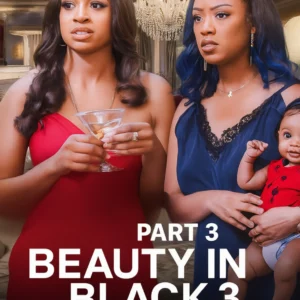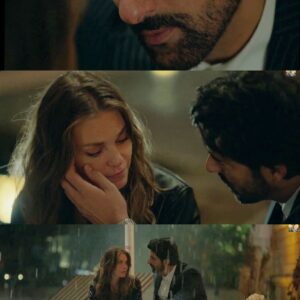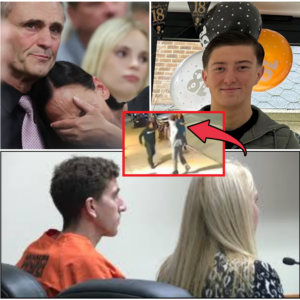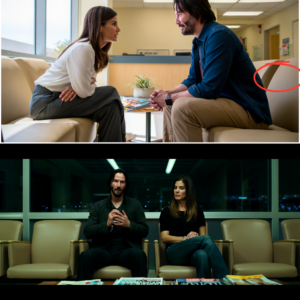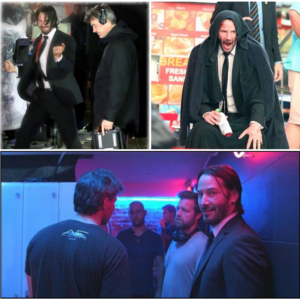Henry Cavill, the beloved star known for portraying Superman, Geralt of Rivia in The Witcher, and a slew of other iconic roles, has long been a fan favorite. His chiseled jawline, commanding screen presence, and genuine humility have earned him a legion of admirers worldwide. But in recent years, Cavill has faced an unexpected challenge—not from a villain on screen, but from a portion of his own fanbase. When news of his romantic relationships surfaced, particularly his relationship with Natalie Viscuso, a TV executive, some fans turned against him, flooding social media with criticism, judgment, and even vitriol. The backlash was swift, harsh, and deeply personal, leaving many to wonder: why would fans attack someone they claim to admire? Now, Cavill is fighting back—not with anger, but with a powerful message of authenticity, boundaries, and the right to a private life. This is the story of how a Hollywood hero stood up for love, and what his response teaches us all.
The Rise of a Hollywood Icon
To understand the weight of the backlash, we first need to appreciate Cavill’s journey. Born on the small island of Jersey in 1983, Henry Cavill’s rise to fame was anything but overnight. He faced rejection early in his career, famously losing out on roles like James Bond and Cedric Diggory in Harry Potter. But his persistence paid off when he landed the role of Clark Kent/Superman in 2013’s Man of Steel. The film catapulted him into global stardom, cementing his status as a leading man. Cavill’s portrayal of the Man of Steel was lauded for its depth, blending vulnerability with strength, and fans quickly dubbed him the definitive Superman of a generation.
Following Man of Steel, Cavill’s career soared. He took on physically demanding roles like Geralt in The Witcher, where he performed many of his own stunts, and August Walker in Mission: Impossible – Fallout, showcasing his versatility. Off-screen, Cavill became known for his down-to-earth personality. He’s a self-professed nerd, often sharing his love for gaming (like World of Warcraft), building PCs, and his American Akita, Kal. Fans adored his authenticity—a Hollywood star who felt relatable, someone who could be your friend as easily as he could be your hero.
But with fame comes scrutiny, and Cavill’s personal life soon became a target. As a public figure, he’s no stranger to rumors, but the intensity of fan reactions to his romantic relationships marked a new low. When Cavill went public with Natalie Viscuso in April 2021, posting a sweet photo of the two playing chess on Instagram, the response was mixed. While many fans celebrated his happiness, a vocal minority unleashed a torrent of negativity, criticizing Viscuso’s background, appearance, and even her intentions. The backlash wasn’t just about disapproval—it was personal, cruel, and relentless.
The Backlash: When Fans Crossed the Line
Natalie Viscuso, a television executive who worked on shows like Scream Queens and The Masked Singer, seemed like a perfect match for Cavill. She shared his passion for storytelling, and the two bonded over their mutual interests, including gaming and creative projects. Cavill’s Instagram post was a rare glimpse into his private life, a moment of vulnerability where he chose to share his happiness. “This is me looking quietly confident shortly before my beautiful and brilliant love Natalie destroys me at chess,” he captioned the photo, his tone light and affectionate.
But the joy was short-lived. Within hours, social media platforms like X and Reddit were flooded with hateful comments. Some fans called Viscuso a “gold-digger,” questioning her motives for dating Cavill. Others criticized her appearance, comparing her unfavorably to Cavill’s past rumored partners. There were even conspiracy theories suggesting she was using Cavill to advance her career. The comments weren’t just critical—they were vicious, with some fans going as far as to say Cavill “deserved better” or that he was “betraying” his fans by dating someone they didn’t approve of.
The backlash wasn’t new for Cavill. He’d faced similar criticism with previous relationships, including his brief romance with Gina Carano in 2013 and his relationship with Tara King, a student 13 years his junior, in 2016. The age gap with King, in particular, drew ire, with fans labeling the relationship “inappropriate.” But the reaction to Viscuso felt different—more intense, more coordinated, and amplified by the echo chambers of social media. For Cavill, who has always been private about his personal life, the attacks were a stark reminder of the cost of fame.
What drives fans to such extremes? Psychologists point to a phenomenon called “parasocial relationships,” where fans develop one-sided emotional bonds with celebrities, feeling a sense of ownership over their lives. When Cavill’s relationships didn’t align with their idealized image of him—often as the “perfect bachelor” or a fantasy partner—they lashed out. “Fans project their desires onto celebrities,” says Dr. Emily Carter, a psychologist specializing in media studies. “When reality doesn’t match the fantasy, it can feel like a personal betrayal, even though the celebrity owes them nothing.”
Cavill’s Response: A Powerful Stand
For months, Cavill remained silent, focusing on his work and relationship. But by May 2021, the negativity had reached a breaking point. Cavill took to Instagram again, this time with a candid and powerful message. Posting a photo of himself and Viscuso, he addressed the “speculation, rumors, and social media hate” head-on. “I am very happy in love, and in life,” he wrote. “I’d be enormously grateful if you were happy with me. If you can’t bring yourself to be happy for me, then please, at the very least, try to do better for yourselves and be the best version of yourselves.”
Cavill’s message was a masterclass in setting boundaries while maintaining grace. He didn’t lash out or name names—instead, he appealed to his fans’ better nature, urging them to reflect on their behavior. “To you out there who are expressing your disdain and showing your displeasure through a surprising variety of ways, it’s time to stop,” he continued. “I know it can be fun to speculate, to gossip, and to dive into our own personal echo chambers on the internet, but your ‘passion’ is misplaced, and it causes harm to the people I care about most.”
The post was a rare glimpse into Cavill’s frustration, but also his strength. He refused to let the hate dictate his happiness, choosing instead to stand firm in his love for Viscuso. He also highlighted the broader impact of online toxicity, noting how it affects not just him, but the people he loves. “Even your most conservative negative assumptions about both my personal and professional life just aren’t true,” he added, debunking the rumors while reclaiming his narrative.
Cavill’s response resonated widely. Many fans praised his courage, flooding the comments with support. “This is why I admire you—not just as an actor, but as a person,” one fan wrote. Others apologized, admitting they’d gotten caught up in the negativity. The post also sparked a broader conversation about the boundaries between celebrities and fans, with outlets like Variety and The Guardian running pieces on the dangers of parasocial relationships and online harassment.
The Aftermath: A New Chapter for Cavill
Since his statement, Cavill has continued to live life on his terms. He and Viscuso have been spotted together at events like the 2022 premiere of Enola Holmes 2, looking happier than ever. They’ve also collaborated professionally, working on a Warhammer 40,000 adaptation for Amazon—a project close to Cavill’s heart as a longtime fan of the tabletop game. The couple’s shared passions have only strengthened their bond, proving the naysayers wrong.
Cavill has also doubled down on his commitment to authenticity. In interviews, he’s spoken more openly about the importance of mental health and setting boundaries. “I’m not here to live up to anyone’s fantasy,” he told Men’s Health in 2023. “I’m here to do my job, tell stories, and live my life as honestly as I can.” His words are a reminder that celebrities, despite their larger-than-life personas, are entitled to the same respect and privacy as anyone else.
A Lesson for Us All
Henry Cavill’s experience with fan backlash is a microcosm of a larger issue: the toxic underbelly of fandom culture. His powerful message serves as a wake-up call, urging us to rethink how we engage with the people we admire. Fandom should be about celebration, not control. Cavill’s stand teaches us that love—whether for a partner, a pet, or oneself—is worth defending, even in the face of criticism.
As Cavill continues to captivate audiences with roles in The Witcher Season 3 and beyond, his legacy is twofold: a talented actor who brings heroes to life, and a man who stands up for what matters most. His fight against fan hate isn’t just about protecting his relationship—it’s about reclaiming his humanity. And in doing so, he’s shown us all what true strength looks like, both on and off the screen.
